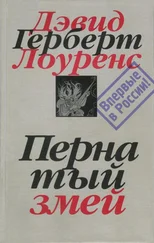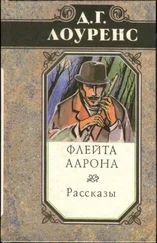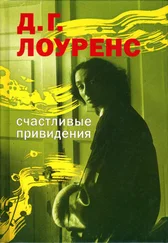Дэвид Лоуренс - Sons and Lovers
Здесь есть возможность читать онлайн «Дэвид Лоуренс - Sons and Lovers» весь текст электронной книги совершенно бесплатно (целиком полную версию без сокращений). В некоторых случаях можно слушать аудио, скачать через торрент в формате fb2 и присутствует краткое содержание. Жанр: Старинная литература, на английском языке. Описание произведения, (предисловие) а так же отзывы посетителей доступны на портале библиотеки ЛибКат.
- Название:Sons and Lovers
- Автор:
- Жанр:
- Год:неизвестен
- ISBN:нет данных
- Рейтинг книги:3 / 5. Голосов: 1
-
Избранное:Добавить в избранное
- Отзывы:
-
Ваша оценка:
- 60
- 1
- 2
- 3
- 4
- 5
Sons and Lovers: краткое содержание, описание и аннотация
Предлагаем к чтению аннотацию, описание, краткое содержание или предисловие (зависит от того, что написал сам автор книги «Sons and Lovers»). Если вы не нашли необходимую информацию о книге — напишите в комментариях, мы постараемся отыскать её.
Sons and Lovers — читать онлайн бесплатно полную книгу (весь текст) целиком
Ниже представлен текст книги, разбитый по страницам. Система сохранения места последней прочитанной страницы, позволяет с удобством читать онлайн бесплатно книгу «Sons and Lovers», без необходимости каждый раз заново искать на чём Вы остановились. Поставьте закладку, и сможете в любой момент перейти на страницу, на которой закончили чтение.
Интервал:
Закладка:
“Mother, Miss Jordan was down to-day, and she said my sketch of a colliery at work was beautiful.”
But Mrs. Morel took no notice. Night after night he forced himself to tell her things, although she did not listen. It drove him almost insane to have her thus. At last:
“What’s a-matter, mother?” he asked.
She did not hear.
“What’s a-matter?” he persisted. “Mother, what’s a-matter?”
“You know what’s the matter,” she said irritably, turning away.
The lad—he was sixteen years old—went to bed drearily. He was cut off and wretched through October, November and December. His mother tried, but she could not rouse herself. She could only brood on her dead son; he had been let to die so cruelly.
At last, on December 23, with his five shillings Christmas-box in his pocket, Paul wandered blindly home. His mother looked at him, and her heart stood still.
“What’s the matter?” she asked.
“I’m badly, mother!” he replied. “Mr. Jordan gave me five shillings for a Christmas-box!”
He handed it to her with trembling hands. She put it on the table.
“You aren’t glad!” he reproached her; but he trembled violently.
“Where hurts you?” she said, unbuttoning his overcoat.
It was the old question.
“I feel badly, mother.”
She undressed him and put him to bed. He had pneumonia dangerously, the doctor said.
“Might he never have had it if I’d kept him at home, not let him go to Nottingham?” was one of the first things she asked.
“He might not have been so bad,” said the doctor.
Mrs. Morel stood condemned on her own ground.
“I should have watched the living, not the dead,” she told herself.
Paul was very ill. His mother lay in bed at nights with him; they could not afford a nurse. He grew worse, and the crisis approached. One night he tossed into consciousness in the ghastly, sickly feeling of dissolution, when all the cells in the body seem in intense irritability to be breaking down, and consciousness makes a last flare of struggle, like madness.
“I s’ll die, mother!” he cried, heaving for breath on the pillow.
She lifted him up, crying in a small voice:
“Oh, my son—my son!”
That brought him to. He realised her. His whole will rose up and arrested him. He put his head on her breast, and took ease of her for love.
“For some things,” said his aunt, “it was a good thing Paul was ill that Christmas. I believe it saved his mother.”
Paul was in bed for seven weeks. He got up white and fragile. His father had bought him a pot of scarlet and gold tulips. They used to flame in the window in the March sunshine as he sat on the sofa chattering to his mother. The two knitted together in perfect intimacy. Mrs. Morel’s life now rooted itself in Paul.
William had been a prophet. Mrs. Morel had a little present and a letter from Lily at Christmas. Mrs. Morel’s sister had a letter at the New Year.
“I was at a ball last night. Some delightful people were there, and I enjoyed myself thoroughly,” said the letter. “I had every dance—did not sit out one.”
Mrs. Morel never heard any more of her.
Morel and his wife were gentle with each other for some time after the death of their son. He would go into a kind of daze, staring wide-eyed and blank across the room. Then he got up suddenly and hurried out to the Three Spots, returning in his normal state. But never in his life would he go for a walk up Shepstone, past the office where his son had worked, and he always avoided the cemetery.
PART TWO
7
Lad-and-Girl Love
PAUL HAD been many times up to Willey Farm during the autumn. He was friends with the two youngest boys. Edgar the eldest, would not condescend at first. And Miriam also refused to be approached. She was afraid of being set at nought, as by her own brothers. The girl was romantic in her soul. Everywhere was a Walter Scott heroine being loved by men with helmets or with plumes in their caps. 1She herself was something of a princess turned into a swine-girl in her own imagination. And she was afraid lest this boy, who, nevertheless, looked something like a Walter Scott hero, who could paint and speak French, and knew what algebra meant, and who went by train to Nottingham every day, might consider her simply as the swine-girl, unable to perceive the princess beneath; so she held aloof.
Her great companion was her mother. They were both brown-eyed, and inclined to be mystical, such women as treasure religion inside them, breathe it in their nostrils, and see the whole of life in a mist thereof. So to Miriam, Christ and God made one great figure, which she loved tremblingly and passionately when a tremendous sunset burned out the western sky, and Ediths, and Lucys, and Rowenas, Brian de Bois Guilberts, Rob Roys, and Guy Mannerings, rustled the sunny leaves in the morning, or sat in her bedroom aloft, alone, when it snowed. 2That was life to her. For the rest, she drudged in the house, which work she would not have minded had not her clean red floor been mucked up immediately by the trampling farm-boots of her brothers. She madly wanted her little brother of four to let her swathe him and stifle him in her love; she went to church reverently, with bowed head, and quivered in anguish from the vulgarity of the other choir-girls and from the common-sounding voice of the curate; she fought with her brothers, whom she considered brutal louts; and she held not her father in too high esteem because he did not carry any mystical ideas cherished in his heart, but only wanted to have as easy a time as he could, and his meals when he was ready for them.
She hated her position as swine-girl. She wanted to be considered. She wanted to learn, thinking that if she could read, as Paul said he could read, “Colomba,” or the “Voyage autour de ma Chambre,” the world would have a different face for her and a deepened respect. 3She could not be princess by wealth or standing. So she was mad to have learning whereon to pride herself. For she was different from other folk, and must not be scooped up among the common fry. Learning was the only distinction to which she thought to aspire.
Her beauty—that of a shy, wild, quivering sensitive thing—seemed nothing to her. Even her soul, so strong for rhapsody, was not enough. She must have something to reinforce her pride, because she felt different from other people. Paul she eyed rather wistfully. On the whole, she scorned the male sex. But here was a new specimen, quick, light, graceful, who could be gentle and who could be sad, and who was clever, and who knew a lot, and who had a death in the family. The boy’s poor morsel of learning exalted him almost sky-high in her esteem. Yet she tried hard to scorn him, because he would not see in her the princess but only the swine-girl. And he scarcely observed her.
Then he was so ill, and she felt he would be weak. Then she would be stronger than he. Then she could love him. If she could be mistress of him in his weakness, take care of him, if he could depend on her, if she could, as it were, have him in her arms, how she would love him!
As soon as the skies brightened and plum-blossom was out, Paul drove off in the milkman’s heavy float up to Willey Farm. Mr. Leivers shouted in a kindly fashion at the boy, then clicked to the horse as they climbed the hill slowly, in the freshness of the morning. White clouds went on their way, crowding to the back of the hills that were rousing in the spring-time. The water of Nethermere lay below, very blue against the seared meadows and the thorn-trees.
It was four and a half miles’ drive. Tiny buds on the hedges, vivid as copper-green, were opening into rosettes; and thrushes called, and blackbirds shrieked and scolded. It was a new, glamorous world.
Читать дальшеИнтервал:
Закладка:
Похожие книги на «Sons and Lovers»
Представляем Вашему вниманию похожие книги на «Sons and Lovers» списком для выбора. Мы отобрали схожую по названию и смыслу литературу в надежде предоставить читателям больше вариантов отыскать новые, интересные, ещё непрочитанные произведения.
Обсуждение, отзывы о книге «Sons and Lovers» и просто собственные мнения читателей. Оставьте ваши комментарии, напишите, что Вы думаете о произведении, его смысле или главных героях. Укажите что конкретно понравилось, а что нет, и почему Вы так считаете.









